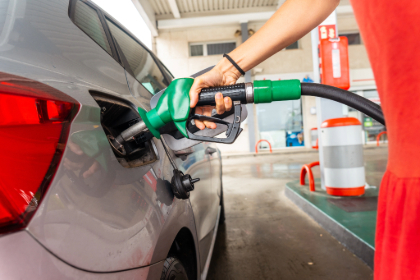INDEPENDENT DEALER
Katy, TX | (281) 746-8893
OUR BLOG
Looking to make fewer trips to the pump in 2025? Discover fuel efficiency tips to cut costs and boost savings, brought to you by Mainstreet Performance LLC in Katy, TX.

Have you ever been shocked by the higher-than-expected prices at the pump? Rising fuel costs and surprise maintenance expenses are a pain, but they don’t have to be a permanent part of your driving experience. The good news? There are simple ways to avoid fuel waste and save big in 2025.
In this post, we’ll share expert fuel efficiency tips to help you get more miles out of every gallon, reduce repair costs, and keep your car running smoothly all year long. Ready to start the year off right? Let’s dive in!
With AMSOIL synthetic oils, your engine will run smoother and longer. Contact Mainstreet Performance LLC in Katy, TX, for expert advice on the right products for your car. Call them at (281) 746-8893 for more info, or shop AMSOIL’s online store for convenient, fast refills!
1. Optimize Your Driving Habits
Smooth Acceleration and Braking
One of the most significant contributors to poor fuel economy is aggressive driving. Quick starts and sudden stops make your engine work harder, burning more fuel than needed. Try to accelerate gently and brake smoothly. This simple change can improve your gas mileage by up to 40% in stop-and-go traffic.
Maintain a Steady Speed
Frequent speed changes can also hurt your fuel efficiency. Keeping a steady speed, particularly on long drives, helps you use less fuel. Cruise control is perfect for this, helping you avoid unnecessary acceleration and braking.
Avoid Idling
Many of us are guilty of leaving the engine running when we’re stuck in traffic or waiting in the parking lot. But idling burns fuel unnecessarily. In fact, if you’re stopped for more than 30 seconds, it’s typically more fuel-efficient to turn off the engine and restart it when you’re ready to go.
2. Prioritize Vehicle Maintenance
Regular Oil Changes
One simple way to boost your car’s fuel efficiency is to keep up with regular oil changes. Over time, engine oil breaks down and picks up dirt, which increases friction inside the engine. This makes your engine work harder, burning more fuel in the process. To keep things running smoothly, follow your car’s oil change schedule and always use the right type of oil.
Tire Pressure Check
Underinflated tires are a hidden culprit when it comes to poor fuel efficiency. Low tire pressure increases rolling resistance, which requires more fuel to move your car. Check your tire pressure at least once a month (and before long trips) to ensure they’re properly inflated.
Tire Alignment and Rotation
Misaligned tires make your car work harder, leading to poor gas mileage and faster tire wear. That is why regular alignments and rotations are the secret to a smoother ride. They not only improve fuel efficiency but also extend the life of your tires, saving you money in the long run.
Filter Replacement
A dirty air filter is like a stuffy nose for your car. It struggles to breathe, leading to poor performance and higher fuel consumption. By replacing your air and fuel filters regularly, you're giving your car a breath of fresh air and boosting its fuel efficiency. It's a small step that can save you big at the pump.
Keep your engine running like new with top-notch formulas like AMSOIL Signature Series 5W-30. Call Mainstreet Performance LLC in Katy, TX, at (281) 746-8893 to get yours today. And if you’re low on supplies, you can always restock quickly at the AMSOIL online store!
3. Lastly, Optimize Your Vehicle's Performance
Remove Unnecessary Weight
Your car’s fuel efficiency is directly impacted by how much weight it has to carry. Keep your trunk and backseat free of heavy items, and if you’re not using a roof rack or carrier, remove it to reduce wind resistance. Less weight means your engine can run more efficiently, saving you fuel.
Use High-Quality Fuel
Always use the recommended octane level for your car, and if you can, opt for high-quality fuel to keep your car running smoothly. Doing so helps keep your engine cleaner, which can improve your fuel efficiency and reduce the need for costly repairs.
Aerodynamics
Aerodynamics plays a big role in fuel efficiency. Excessive drag from roof racks, carriers, or even open windows can reduce your miles per gallon. If you’re not using your roof rack, take it off. If you’re traveling at high speeds, keep your windows up. This simple change can improve your car’s efficiency, especially on long highway trips.